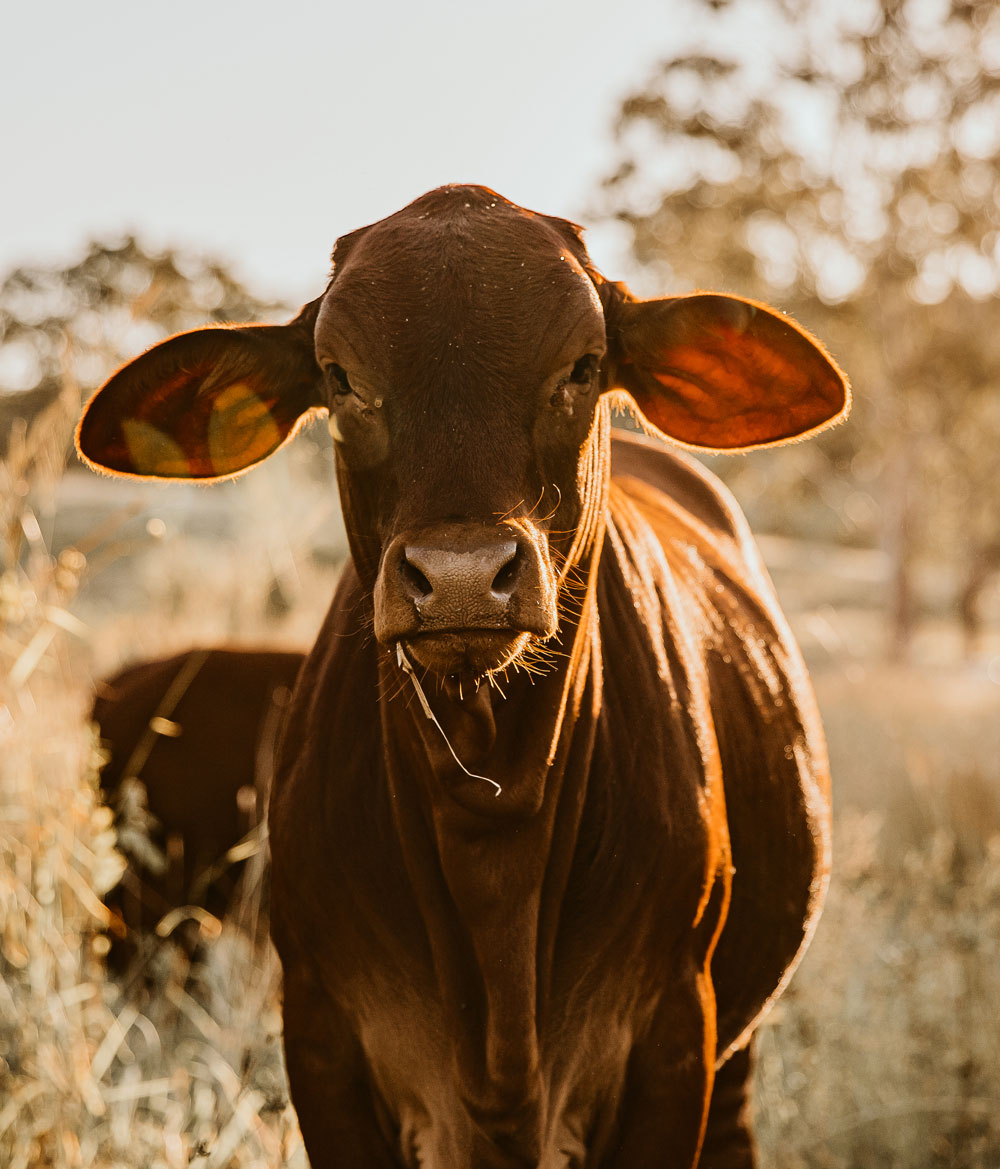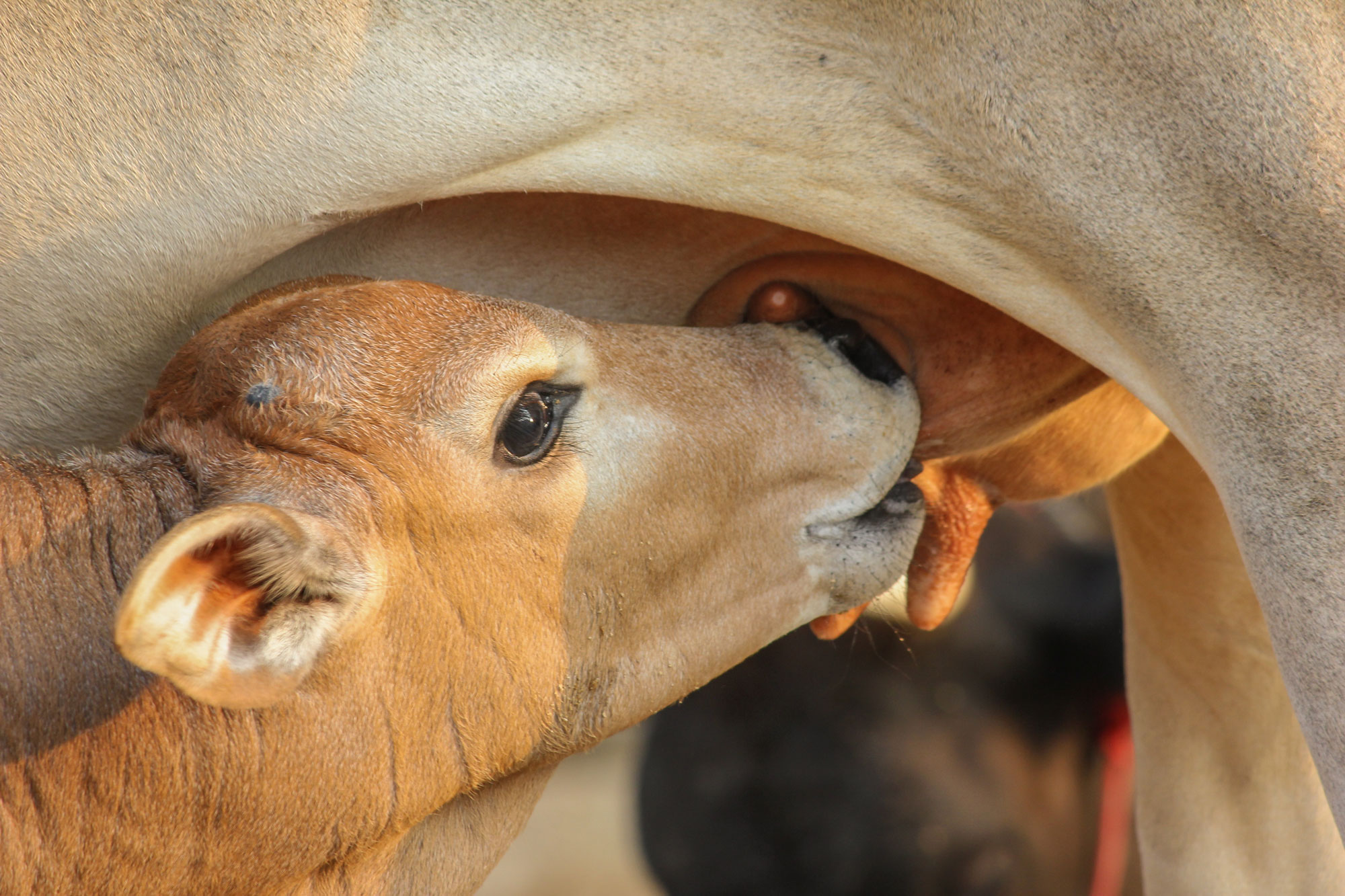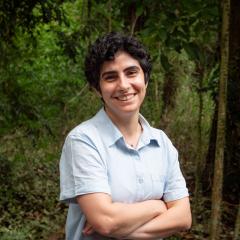Calf mortality is a key issue for the north Australian beef industry.
Summary of findings:
- All calves need to drink (at least) 3L of colostrum in the first 12 h after birth for normal health. Otherwise, mortality is increased by up to 4-fold.
- Currently cows are being underfed during late gestation, which reduces colostrum yield (by as much as 50%) and calf health
- Targeted supplementation before calving can improve calf survival and future growth
While selection for genetic traits to improve fertility will contribute to overall herd improvement, calf survival and future performance is heavily dependent upon management strategies producers employ in the breeding herd.
According to Associate Professor Luis Prada e Silva from the Queensland Alliance for Agriculture and Food Innovation (QAAFI) at The University of Queensland, a research institute supported by the Department of Agriculture and Fisheries and industry, poor nutrition and environmental stress are among the dominant factors impacting calf mortality.

“The cows need good nutrition during the last three months of gestation, especially protein, to sustain the growing foetus and prepare for lactation,” Dr Prada e Silva said.
“However, in northern Australia, this period coincides with the end of the dry season, with poor-quality pastures available to feed the cows.”
Research by Dr Prada e Silva with Brahman and Droughtmaster cattle identified that the lack of protein during late gestation had a major impact on calf survival.
“Both the lack of protein and heat stress will reduce milk delivery to newborn calves, decreasing the chance of survival and the future performance of the calf,” Dr Prada e Silva said.

Dehydration will quickly kill a calf.
Research undertaken by QAAFI’s recently retired Dr Geoff Fordyce with Brahman-cross calves identified that calves that did not suckle or obtain adequate milk per day were likely to die within four days – under moderate temperatures.
In hot conditions, the rate of dehydration is much greater, with calves likely to die within two days of birth.
Unlike humans, calves are born without any protection against pathogens and must drink at least 3L of colostrum in the first 12h after birth to have a good chance of survival.
“We have identified the mechanism by which poor nutrition is affecting colostrum secretion and we are working with cattle producers to improve milk delivery to the baby calves,” said Dr Prada e Silva.
Dr Prada e Silva, Dr Geoffry Fordyce and other cattle experts will be discussing calf survival at the Calf Alive northern Australian symposium, to be held in Hughenden, on Friday 26 November.
Other calf survival strategies Dr Prada e Silva will discuss at the symposium include:
- Reproductive diseases
- Shade and calf health
- Early identification of more efficient cows
- How to turn research into practice change
- Digital sensor systems for breeding businesses
Big data, fertility, and calf survival
‘Precision Beef’ is an integrated research strategy that pinpoints ways to maximise beef production and value.
The program is being coordinated by Professor Ben Hayes, Director of QAAFI’s Centre for Animal Science.
‘Precision Beef’ works by capturing and combining information about some of the key drivers of beef prices: genetics, rearing, environment, pasture, and a unique approach to meat quality.
“The key components of profitability in the beef industry are each technically complex research subjects,” Professor Hayes said.
“What Precision Beef does is connect the dots, bringing together researchers that deal with different industry issues on one hand, and combining our understanding within one integrated computer system on the other.”
Computer algorithms make it possible to backtrack the quality data against how cows were reared, their genetics, the nutritional value of pastures, the associated methane production and even stress levels experienced by herds.
Each of these additional components are the subject of intensive research programs at QAAFI that are powered by advanced technology including artificial intelligence and genomics.
An important focus of this work is the ability to select the genetics and pastures that can enhance reproductive efficiency and increase the number of calves a cow can produce over a lifetime. This has important efficiency and sustainability impacts.
Professor Hayes has developed a breeding program to select for improved fertility genetics, which is already improving the reproductive efficiency of 54 participating cattle herds.

His colleague, Dr Prada e Silva, can measure the impact on fertility of the nutritional value of different pastures – based on nitrogen levels in tail hair samples.
Satellite images then could make it possible to survey the nutritional quality (and, therefore, its impact on fertility) of pastures across Australian landscapes.
The next step is to link back to the taste and sensory perception data to generate additional predictions on the quality and market value of beef products coming through the supply chain.
“The power of Precision Beef would come from combining datasets in such a way that producers gain clarity about the risks, costs and returns associated with different strategies for managing and marketing their cattle herds,” Professor Hayes said.
These calf mortality research approaches form a program of work at QAAFI that supports the Northern Breeding Business (NB2) program, an initiative developed by Meat & Livestock Australia to address calf loss in northern breeding herds, low profitability of many northern beef enterprises, and low adoption of proven management practices and technology.
Register for the Calf Alive event.
Fri., 26 November 2021, 8:30 am – 1:30 pm AEST
Location
Diggers Entertainment Centre
21 Brodie Street, Hughenden, QLD 4821
For more information, contact: Associate Professor Luis Prada e Silva, President, QLD&NT branch, Australian Association of Animal Sciences and Principal, Tel: +61 7 3346 2166, Mobile: +61 0421 833 376, Email: l.pradaesilva@uq.edu.au The Queensland Alliance for Agriculture and Food Innovation is a research institute at The University of Queensland, established with and supported by the Queensland Department of Primary Industries.




